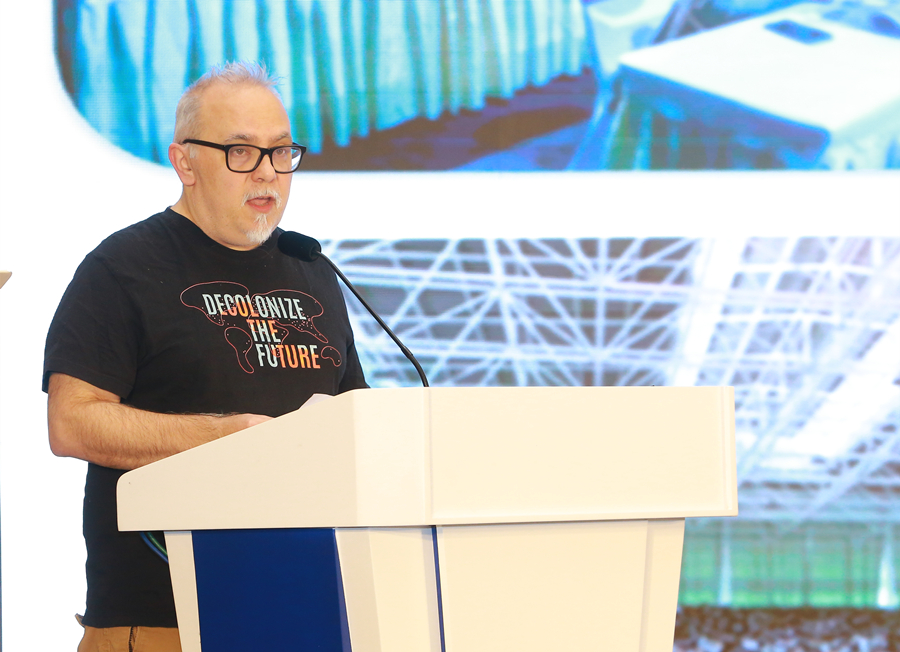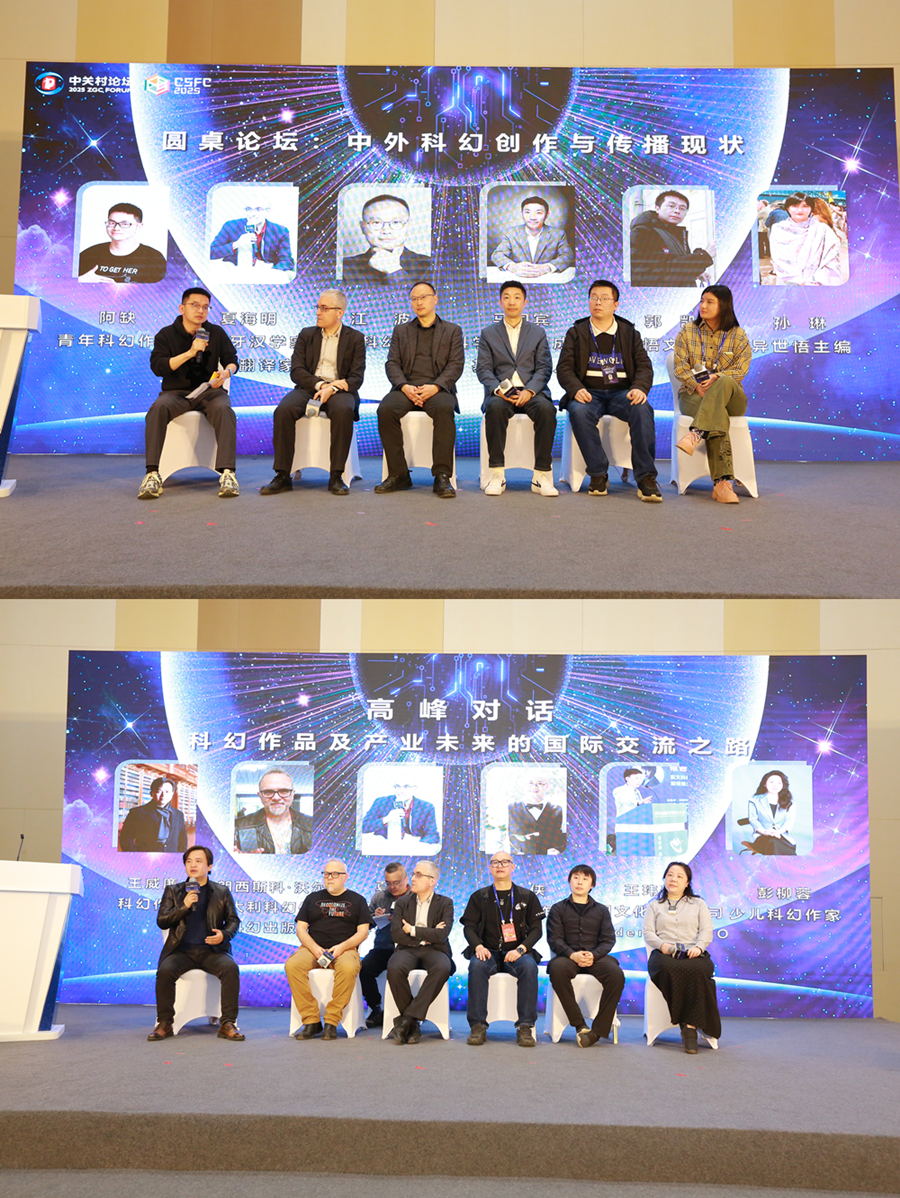
 0 Comment(s)
0 Comment(s) Print
Print E-mail China.org.cn, April 3, 2025
E-mail China.org.cn, April 3, 2025

Francesco Verso delivers a keynote speech at an international forum during the 2025 China Science Fiction Convention in Beijing, March 30, 2025. [Photo courtesy of the Beijing Yuanyu Science Fiction and Future Technology Research Institute]
Writers, experts and insiders expressed optimism about the future of Chinese science fiction and discussed its current state and global expansion at a forum during the 2025 China Science Fiction Convention (CSFC 2025) in Beijing on Sunday.
Francesco Verso, an Italian sci-fi writer and publisher of 13 books of Chinese science fiction, has attended numerous conventions across Italy, Europe and around the world. "After the phenomenal WorldCon in Chengdu and the worldwide success of 'The Three-Body Problem' by Liu Cixin, I can confidently say that Chinese sci-fi is here to stay," he said.
"And for a very good reason: People read Chinese science fiction, and they love it," Verso added. "I've published, and I can assure you – Chinese sci-fi is among the most appreciated works."
Just last year, "The Three-Body Problem" ranked fourth among the top 10 best-selling books in Italy. "For a science fiction novel, that is an extraordinary achievement," he said, while also revealing his plans to publish a novel by Wang Jinkang this year, translated by Francesca Bistocchi.
"And to all of you – authors, readers, experts, translators and producers – you are one of the most exciting and transformative forces in global science fiction today," Verso said. "Keep writing excellent stories and I will be there, ready to translate, publish and promote them."
Mitchell Farkas, an American television producer, writer and director, introduced his documentary series "Flash Forward" that was broadcast on China Central Television (CCTV), which examines global challenges and how China is planning to meet them.
"If science fiction is all about exploring what could happen with our world, it also pushes limits and gives us a glimpse of what's possible. After all, as humans, we're natural storytellers – we make sense of the world through stories," Farkas said in a keynote speech about finding inspiration for Chinese sci-fi.
Liang Gaoyan, a lecturer from Shanxi University of Finance and Economics, shared the findings of her research into international translations of Liu Cixin's 37 novels created over 35 years. The most notable remains Liu's "Three-Body" trilogy, which has sold 40 million copies worldwide.
Liang noted that the translation and overseas publication of Chinese sci-fi started late and still lacks high-quality translators. However, as sci-fi literature has boomed in recent years, the speed of translation and publication has quickened, while there is plenty of content awaiting translation. "We should inspire more sci-fi writers to create and improve overall literary quality, nurture more skilled translators and international copyright agents, making Chinese sci-fi visible and significant in world literature," she said.

Writers and experts take part in panel discussions on overseas growth and exchanges of Chinese sci-fi at an international forum during the 2025 China Science Fiction Convention in Beijing, March 30, 2025. [Photo courtesy of the Beijing Yuanyu Science Fiction and Future Technology Research Institute]
Chinese sci-fi writer Bao Shu analyzed three key themes at the forum – the appeal of Chinese culture, contemporary Chinese narratives and current opportunities and challenges. He illustrated his points with photographs of translated Chinese sci-fi books collected during his overseas travels.
Sci-fi writer Jiang Bo stressed that Chinese writers should concentrate first on creating quality works and gaining recognition from domestic readers before considering overseas expansion. He advocated prioritizing English translations and markets, which would then drive translations in minor languages, and expressed confidence that China's growing national strength and international sci-fi partners would help elevate Chinese sci-fi on the global stage.
"The Western view of the future has actually occupied our imagination. But this occupation does not reflect the diversity of the many possible futures," Francesco Verso said. "I came across Chinese science fiction, which is one of the most interesting phenomenon in science fiction worldwide. But there is no big difference in the themes because we are all humans, we all share the same hopes and anxieties as we see problems in the same future. It's important to acknowledge that there is no one single solution for everyone."